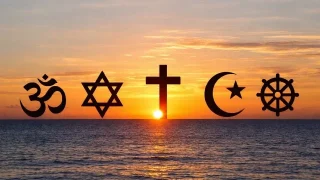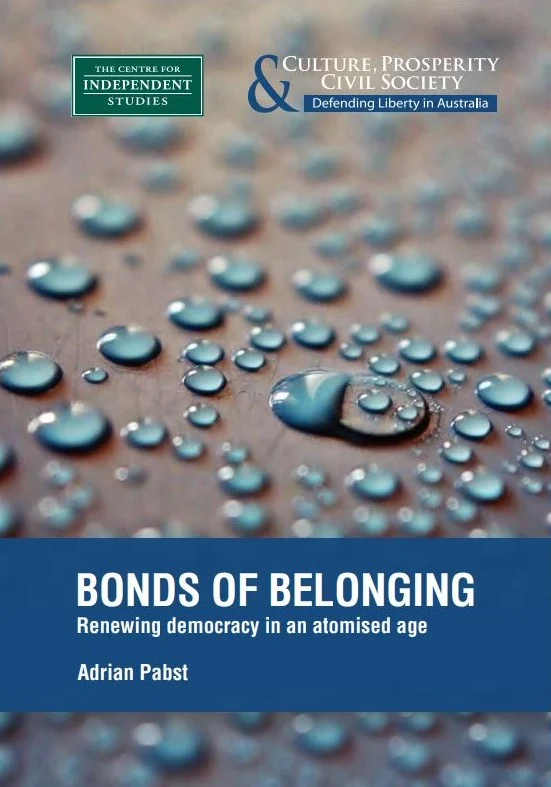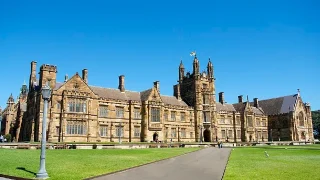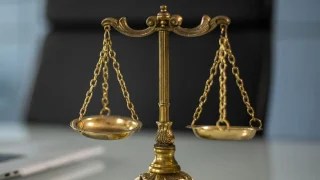
Introduction
Liberal democracy is under threat from tech platforms, identity politics, and hostile foreign powers such as China or Russia. These forces exacerbate existing fragilities that have been exposed by repeated shocks — from the 2008 global financial crisis to the Covid-19 pandemic and now the cost-of-living crisis. This Occasional Paper argues that Western liberal democracies lack resilience: across the West, economic models are in disarray while social models engender cultural fragmentation and politics breeds polarisation.
At the heart of liberal democracy’s self-erosion lie three closely connected factors: first, a growing self-betrayal of Western civilisation, which is reflected in increasingly illiberal attacks on history and our cultural inheritance; second, indifference or hostility towards the West’s religious traditions, which contradicts liberal tolerance; and third, the sundering of material interests from moral principles, such as woke social justice trumping ethical enterprise, which is at the expense of both investors and society — for example the reluctance of lenders to fund projects to ensure a workable transition to cleaner energy. The ensuing atomisation of Western societies undermines attempts to confront the existential threats to liberal democracy.
To renew both the liberal promise of liberty allied to tolerance and the democratic promise of making people partners in power, liberal democracies need to build institutions and nurture relationships that balance personal freedom with social stability and a sense of personal belonging with shared agency. Self-belief and belief in the best traditions of the West are vital sources to develop more resilient economies, societies and polities.
1. Liberal democracy in decline
Liberal democracy is in decline. Around the globe, authoritarian rule and dictatorship are on the rise, led by the autocratic axis of China and Russia. According to V-Dem, a Swedish institute that produces the largest global database on democratic rule, the number of liberal democracies is down from a peak of 42 countries in 2012 to 34 countries in 2021 — covering just 13 per cent of the world population.[1] It finds that authoritarian and dictatorial systems are expanding and now encompass more than 70 per cent of the world population, mostly in Asia-Pacific, as well as parts of both Africa and Latin America.
The low level of population in liberal democracies in the V-Dem rankings can be explained, in part, because of the technical definition of ‘liberal democracy’ applied by the institute, rather than the common understanding. For example, it ranks India as ‘autocratic’ and places the populous nation in the top 10 autocratic countries in the world — which would have a significant impact on its findings.
The Pew Research Center is more optimistic about levels of global democracy, although it has a graded system. In a 2017 survey, Pew found 96 out of 167 countries with populations of at least 500,000 (57 per cent) were democracies of some kind, and only 21 (13 per cent) were autocracies.[2] Almost four dozen other countries — 46, or 28 per cent — exhibited elements of both democracy and autocracy. Similarly, The Economist’s 2022 Democracy Index shows that more than one-third of the global population, 36.9 per cent live under authoritarian rule — a majority of whom are in China and Russia.[3] Meanwhile, almost half of the global population, 45.3 per cent, live in a democracy (full or flawed) but only 8 per cent in a full democracy — with the USA being classified as a flawed democracy since 2016.
However, other indices, such as Freedom House’s annual report Freedom in the World, underscore the decline of liberal democracy. In its 2022 edition entitled, ‘The Global Expansion of Authoritarian Rule’, Freedom House showed that democracy is under threat from the loss of freedom that has been going for 16 consecutive years: “a total of 60 countries suffered declines over the past year, while only 25 improved”.[4] Last year, almost 40 per cent of the world’s population lived in countries classified as not free, which is the highest proportion since the heydays of the post-Cold War era in the 1990s. Only about 20 per cent live in countries that can be considered free.
Moreover, across the West, levels of popular trust in the institutions and good functioning of liberal democratic systems are falling significantly. In 2022, the UK think-tank Onward found that three-fifths (61 per cent) of 18–34-year-olds agree that “having a strong leader who does not have to bother with parliament and elections would be a good way of governing this country” while 46 per cent of 18-34s agree that “having the army rule would be a good way of governing this country”.[5]
In Australia, research by the CIS’s Tom Switzer and Charles Jacobs shows that almost 60 per cent of millennials view socialism favourably, while ignoring the failures and crimes of 20th-century state socialist experiments.[6] And in the USA, fewer than one third of adults under the age of 30 attach importance to more traditional priorities such as patriotism, religion, having children and being involved in the local community, while a growing proportion of the younger generation rate the pursuit of wealth and issues such as diversity, inclusion and equality above those values.[7]
While it is true that political views and social attitudes change over time, the fact that younger people today are deeply disillusioned by democracy and openly considering authoritarian alternatives suggests that majority support for democratic rule cannot be viewed as a given.
Authoritarian tendencies within democracies are neither confined to the young nor to illiberal democracies such as Hungary and Poland. Support for authoritarianism is also growing in countries with liberal democratic norms like the United States, the United Kingdom, Germany and France. This is evinced by the strength of far-left and radical-right parties but also the authoritarian outlook of leaders such as the French President Emmanuel Macron, who has ignored the popular protest of the Yellow Vest movement in 2018-19 and bypassed parliament to push through controversial laws on pension reform.
In the wake of the war on terror and Covid-19, it is becoming apparent that authoritarian measures linked to state surveillance and bio-medical control are just as easily implemented within political structures that remain formally democratic. As crisis is normalised, emergency rule and the state of exception become the new norm.[8]
Central to these trends is a fundamental feature of today’s liberal democracies — a shift away from shared norms of social trust, community cohesion and democratically governed cooperation towards atomisation within society and authoritarianism by governments. Many people, especially the young, tend to become increasingly isolated individuals. Indeed, a combination of narrow social networks, overprotective parenting, alienating jobs, and the primacy of online connections over real relationships is breeding a culture of disaffection that is eroding support for democracy and creating social fragmentation on which authoritarian politics thrives.
2. The unravelling of the social fabric
The decline of liberal democracy has many driving forces, including the intrusive influence of global tech platforms, the rise of extreme identity politics and the anti-liberal outlook and hostile actions of foreign powers such as China or Russia. But an oft-overlooked reason is that across Western and non-Western liberal democracies, the social fabric is unravelling. As a result, levels of popular trust in democratic government have fallen and apathy has risen. Into the void have stepped authoritarian parties and leaders.
There has been a marked decay in the relationships and institutions that make up social life on which the good functioning of democracy depends. First of all, not only are rates of divorce and family breakdown increasing, but it is also the case that more children are born outside of stable relationships. According to the Australian Institute of Family Studies, there were 2.2 divorces per 1000 residents in 2021, up from 1.9 in 2020, while children born ex-nuptial rose from 7 per cent in 1971 to 38 per cent in 2021. In the USA, more people live alone today than at any point in the country’s history, with more than 25 per cent of households consisting of one person only.[9]
Second, fewer people are members of local groups, or volunteers, or attend church or engage in community activities, all of which reduces levels of social trust and communal cooperation that nurtures democratic norms of consensus-building and peaceful acceptance of election outcomes.[10]
Third, we observe less charitable giving, lower trust in civic institutions, more debt, greater job precarity, and fewer people experiencing stable housing tenure. Insecurity is increasingly our common condition, and it paves the way for far-left or radical-right populism and strongman leadership.[11]
To say that the social fabric is unravelling does not imply that all aspects of life in society have become worse. Formal educational attainment has improved, but it has done so alongside the dumbing down of education — especially in the humanities — and a loss of both vocational and technical training (especially in the UK with the transformation of polytechnics into universities).[12]
Rates of serious crime have fallen, although crime rates can vary on a year-to-year basis, while life expectancy has increased. What is notable is that working people are more likely to share meals with their children today compared to a generation ago. The same is true for extended family who help with child-rearing. These trends have mitigated the erosion of social life, yet they have not reversed the decline of family and community on which democratic norms and the good functioning of liberal democracy rest.
Ever-higher levels of loneliness and isolation, combined with ill physical and mental health, are engendering what Anne Case and Angus Deaton have called “deaths of despair”.[13] The rich tapestry that binds together relational ties and makes us human is not just fraying at the margins. In both prosperous and poor parts of advanced economies, it is being torn asunder.
The wealthy have higher levels of social capital and lead longer, healthier lives but they are by no means immune from loneliness and social isolation, which is particularly true of the elderly but extends to those young people who are part of the ‘always online’ culture.
Crucially, wealth is not a sufficient condition for human flourishing or social trust in democracy: beyond a certain level, an increase in wealth is associated with a decline in happiness — a phenomenon known in economics as the Easterlin paradox.[14] Lower levels of happiness breed alienation and support for authoritarianism. This applies not just to individuals within advanced economies but also to wider sections of society, hence the paradoxical phenomenon of growing prosperity combined with rising unhappiness.[15]
As material measures such as GDP fail to reflect how people experience their lives, there is a need to shift to a more holistic approach that can conceptualise the paradox of growing material progress and the unravelling of our social fabric. According to the author and New York Times columnist David Brooks, “James Carville [Bill Clinton’s pollster] famously said, ‘It’s the economy, stupid’. But that’s too narrow. Often, it’s human flourishing, stupid, including community cohesion, a sense of being respected, social connection”.[16]
Noreena Hertz has documented how loneliness is not confined to feeling bereft of love, care, and company or feeling ignored by family, friends, and neighbours. It is also about a perception of a lack of support and attention from fellow citizens, employers, communities and government in terms of public services to sustain everyday life.[17] Loneliness is as much an internal state of feeling disconnected from ourselves and our loved ones as it is an existential condition of feeling politically and economically excluded — ignored by our politics and political leaders, as well as being powerless, invisible and voiceless in society.
Since the onset of the second wave of globalisation in the 1990s, we have observed periodic explosions of popular anger and rage against the impersonal forces of bureaucracies and market volatilities. The reverse side of anger and rage is a sense of humiliation and despair. Those robbed of agency and dignity feel powerless, without a voice, unrepresented and ignored by mainstream politics.
The backlash against the old consensus has detonated the three political traditions that have dominated Western politics since the 19th century: liberalism, conservatism, and social democracy. In some parts of the west, centrist parties have been reduced to what the late political theorist Peter Mair called “ruling the void”[18] — a vacuum left by popular disaffection and a collapse in political participation. All this erodes popular trust in democracy and fuels support for authoritarian rule.[19] Atomisation and authoritarianism are but two sides of the same coin.
3. How Western self-loathing undermines liberal democracy
Much of the West is drifting into a state of deterioration. Living standards are at best stagnating but in many countries declining as result of weak economic growth combined with a lack of resilience in the face of external shocks — from the 2008-09 financial crisis to Covid-19 and now the cost-of-living crisis. A febrile financial system following the collapse of Silicon Valley Bank and the rescue of Credit Suisse by UBS adds to the uncertainty caused by geopolitical frictions — above all Russia’s war on Ukraine, the US-China technology and trade war as well as tensions over Taiwan.
This is exacerbated by government policies that limit the abilities of nations to produce affordable energy and its impact on industrial capacity for essentials from personal protective equipment to semi-conductors, and, in some cases, even food.
A number of Western countries face an unpalatable choice between progressive technocrats and demagogic populists that endangers a more plural democracy.[20] In the US, demagoguery and demonisation have overridden the norms of election losers’ consent and of treating political adversaries as legitimate opponents rather than existential enemies — with Donald Trump leading his supporters in chanting, “Lock her [Hillary Clinton] up” in 2016 and failing to recognise defeat in 2020, while Hillary Clinton described half of Trump voters as a “basket of deplorables” and continued to make baseless accusations about him colluding with Putin’s Russia despite the findings of the Muller inquiry.
Democratic politics is being degraded even as liberal institutions endure and the constitutional order remains intact, despite periodic shocks such as the storming of the Capitol by a Trump-incited mob on January 6, 2021. Institutional inertia is so far preventing a slide towards anarchy, but is it sufficient to renew democracy and make our democratic culture more resilient faced with destructive forces from within and without? One of the greatest dangers confronting liberal democracy is a crisis of legitimacy that casts doubt on the very foundations of representative government, the rule of law and constitutionally guaranteed freedoms connected with both rights and duties.
Meanwhile, popular participation in the political process is at an all-time low since 1945 with voter turnout and party membership in decline across Western countries. And when elected leaders such as Silvio Berlusconi or Trump begin to subvert democratic institutions, democracy is debased even as formal procedures remain in place.[21] The loss of a shared language of democratic contest has accelerated both partisanship and indifference, turning elections into a spectacle devoid of genuine debate.
Contemporary liberalism is threatened from two seemingly opposite directions. On the one hand, the right to self-identify is now deemed to override the right to free debate and free expression of conscience. An excessive fear of causing offence is disabling democracy. On the other hand, everyone is increasingly subject to control and surveillance of their behaviour in order to enforce security.
In terms of speech, if you do not hold moral views and political opinions deemed correct, you may not be able any longer to participate fully in democratic debate or even in the exercise of fundamental rights linked to citizenship — with zealots seeking to erase non-progressive views from political contests. Freedom of religious expression is also open to question by the progressivist movement, as exemplified by British Airways preventing one of its check-in operators from wearing a cross at work.
Individualism and centralisation, however, can be linked. An anarchy of self-assertion can only be policed by an imposition of a formal order that is increasingly authoritarian — hence the passing of laws on the right to gender self-identification despite constitutional concerns and growing popular resistance.
Those who weaponise racial and other injustice are often the same forces that deploy new modes of social control, not least attempted bullying of the majority by way of riots, looting and frenzied acts of iconoclasm.[22] What started a century or so ago as the liberal struggle for equality dissolves into mob rule and mass lawlessness — as with the tearing down of statues by anti-racism protesters and the targeting of high culture, in particular works of art, by environmental activists.
Paradoxically, it is often more traditional forms of religion and belief that have come under sustained attack from the ‘new puritans’ who have unleashed a ‘critical social justice’ crusade to locate and punish the heretics who depart from the new orthodoxy of authoritarian identity politics.[23] There are multiple campaigns to rewrite school and university curricula, combined with attacks on any dissenters who are hounded out of classrooms and workplaces while being trolled on social media.[24] The irony of imposing a uniform view about everything in the name of equality, diversity and inclusion seems lost on its advocates.
Extreme identity politics is but one example of a general Western malaise. At the same time, the West’s history — whether the most recent modern legacy or the inheritance of its longer past — is now regarded wholly negatively by an increasing number because its essence is supposedly one of unqualified racism and colonialism. In his speech to the assembled lower and upper houses of the Russian parliament on February 21, 2023, Russia’s President Vladimir Putin claimed that “over the long centuries of colonialism, diktat and hegemony, they [Western powers] got used to being allowed everything, got used to spitting on the whole world”.
It is not just the West’s adversaries who take this line. The past is something for which parts of the West now too feel required to apologise. At the start of the football World Cup in Qatar in November 2022, Gianni Infantino — the Italian president of football’s international governing body FIFA — said: “For what we Europeans have been doing around the world in the last 3000 years we should be apologising for the next 3000 years before starting to give moral lessons to people”.
Thus, the West has opened itself to the predation of the rising global forces led by China with its Russian ally that wish to replace its hegemony. But rather than a productive critical reassessment of its past, the West is heading down a dangerous path of self-hatred. It is forgetting that the finest of the values of liberalism and Enlightenment have Christian roots — including equality and the dignity of the person.[25]
At the same time many leaders and elites across the Western world appear to ignore that it is these resources that are best able to overcome a purely rationalistic, instrumentalist and utilitarian outlook, which sits ill with the civilisational traditions of the West and the rest. Despite deep differences, civilisations have at critical junctures embraced shared conceptions, for example during the so-called Axial Age (800–200 BC) when the great philosophies of East and West emerged together with faith traditions.
In Plato, Buddha, Confucius, the Old Testament prophets and later Jesus, they converged around two arguments: first, a rejection of absolutist power underwritten by gods who were not believed to be on the side of ordinary humans; and, second, the belief that personal flourishing is connected with a transcendent outlook that refuses sacrificial practices to appease divine wrath and instead favours the dignity of the person.[26] It is this legacy on which democracy depends that is under threat.
The growing disconnection of politics, the economy and geopolitical objectives from society, culture and civilisation is deepening divisions both between and within Western countries — yawning divides of class, ideology, community and nation which split asunder interests from values. All this undermines not just the proper functioning of liberal democracy but poses a risk to the future of liberal democratic systems.
4. A new covenant
Western societies are increasingly becoming balkanised, in particular the US and the UK. As both communities and countries, we no longer know how to define who we are or what we stand for. In many places, we are losing our ability to live together, work together or help one another — or even articulate this predicament. Faced with the prospect of permanent crisis and either decline or even the prospect of civil disorder, there is an urgent need to renew the bonds of belonging that underpin liberal democracy.
These bonds rests on a recognition that society cannot be founded exclusively upon an impersonal social contract between individuals but tends to emerge from a reciprocal covenant between the generations. Covenantal ties — the complex web of intergenerational bonds — are more primary than contract because relationships are more fundamental than transactions and the latter are not sustained without the former. Humans need love, lived solidarity and emotional stability as much as physical or material security, like shelter or money to put food on the table.
Being born into a state of complete dependency, we are embodied creatures who are oriented towards our mother, family and extended kin who provide the love we need to live and flourish. Rites of passage into adulthood involve life in society with a balance of rights and obligations. First there is ‘we’, then there is ‘me’.
The primacy of the ‘we’ reflects the natural anthropological desire for relationships and institutions that provide meaning. If humans are ultimately meaning-seeking and story-telling animals (rather than selfish utility-maximisers), then the self only makes sense in something greater than itself. In our quest for a more purposeful life, we discern at the heart of ourselves what the late Jonathan Sacks, former UK chief rabbi, calls the greater human ‘we’ — all the covenantal ties binding us together as humans who are social beings.[27]
For liberal democracy, this means recognising that the commitment to certain principles has to be qualified and tempered by the practice of virtue. Liberty is not freedom from obligations or freedom for essentially selfish interests but a freedom of care for oneself and for others. Individual fulfilment based on personal agency has to be fused with mutual flourishing and collective action. Equality is not sameness but rather a respect for the basic and integral dignity of every person. Individual rights should not be rolled back but rather made concrete and relational by linking them to obligations towards others.[28]
For example, personal freedom is a precious gift under threat from both internal and external forces but securing freedoms for every person requires more than just extending individual rights. We need a more mutual conception of what being free in society means. Unlike the negative liberty of liberalism (i.e., freedom from constraints on individual choice except for the law and private conscience), positive liberty pursues certain common ends such as shared prosperity and social cohesion.
A renewed social fabric rests on the recognition that the political order is plural – that persons are irreducibly plural and that there is not a single way to live a good life. Pluralism also applies to the sources of sovereignty.[29] Neither the state nor nations nor intermediary institutions have absolute authority over us. Instead, sovereign power is shared between them within a variety of distinct yet partially overlapping spheres.
The plural nature of the person and the polity is best reflected in a subsidiarist state — with power located at the appropriate level in line with individual fulfilment and mutual flourishing — and in a society seen as a community of largely self-governing communities. As the American writer Michael Lind has argued, subsidiarity and autonomy imply that central government only has plenary and exclusive jurisdiction in some areas but must share sovereign power within its territory with corporate bodies and communities of different kinds.[30]
In other words, renewing social bonds will require a more democratic polity that puts society before the interests of centralised bureaucracy. Such a polity involves communities, for example, through local councils and other intermediary organisations.
5. Political and Economic Democracy
Democracy in the sense of universal suffrage is a much more recent, early 20th-century phenomenon than parliamentary sovereignty or the idea of representative government.[31] The tragedy of contemporary liberal democracy is that it tends to equate democratic rule largely with elections, even if the substance of democratic debate and norms is being hollowed out. As a result, elections — while offering some choice between different parties and policies – often revolve around personalities, dominated by spin and public relations. Democracy risks sliding into a politics devoid of competence and conviction. Now, as then, Winston Churchill was right when he described our age as one “of clutter and buzz, of gape and gloat”.
To recreate trust in political institutions such as political parties and parliament, liberal democracies need to rebuild mass-membership organisations that are not limited to vocal activists but represent society at large and bolster parliamentary powers to hold the executive better to account. Stronger institutions are also needed to inject more long-term thinking in order to address the deep-seated problems such as low economic growth, responses to climate change, falling levels of social cohesion as well as a lack of industrial and military resilience in face of growing global disorder.[32]
It will take decades and generations to tackle these fundamental tasks, and most liberal democracies lack two vital pre-conditions. One is careful institution-building that re-creates state capacity at local, state and federal levels, replacing layers of stifling bureaucracy and managerialism with arrangements that privilege public ethos and service rather than administrative control or the pursuit of meaningless metrics that consume time and resources.
The managerialist mantra that is championed by so many politicians and civil servants shoots for efficiency and lands in wastefulness.
The second pre-condition is greater popular participation in power. A more representative government involves more civic involvement in debate and decision-making, as well as elites that lead by example and embody the social virtues of honour, loyalty, duty, practical wisdom, generosity and humility. Building a good society has tended to involve the practice of virtue and the exercise of what Aristotle called ‘right reason’ and practical wisdom.
All of this may sound nostalgic, but it is only unrealistic for as long as we accept the dominant assumptions about the supposed inevitability of progress. While cultural change comes with loss as well as gain, it is nonetheless possible to nurture perennial principles embodied in particular practices, for example virtuous action at the service of justice by making the teaching of civic ethos in school and university curricula mandatory.
I will presently turn to some other intermediary steps that can be taken on the path of transformation. For now, it is necessary to stress that any hope of renewing trust in politics will also necessitate a move beyond a transactional politics that pursues either mere collective utility — “the greatest happiness of the greatest number”, in the words of the utilitarian thinker Jeremy Bentham, which implies some compensation for the ‘unhappy’, or simply individual entitlements. But since purely personal rights and freedoms collide, it is power that ultimately decides which ones prevails.
Neither a utilitarian nor a legalist approach alone can order relations in society and provide a sense of shared purpose for citizens. Therefore, liberal democracies require something like a politics of the common good where duties are as fundamental as rights, and both serve a substantive sense of justice that is concerned not only with due process but also with the distribution of resources according to need and talent. Such a conception of justice would be based on reciprocity,[33] i.e., a recognition of mutual dependence without domination.
This balance is more than a procedural question, however vital, but involves the formation of character through continual education. Liberal democratic systems have to relearn law and policy as pedagogic — each law must in some sense nurture what George Orwell called ‘common decency’, and every policy must embody a principle of public service. Public life and education, the life of an individual citizen, must be the ever-unfolding quest for vocation, place and purpose. Just as rights and duties must be balanced and integrated, so too our pursuit of individual fulfilment must be reconciled with our duty to serve the mutual flourishing of all.
Thus, renewing the universal promise of liberal democracy will require a much stronger common commitment to shared ends — the relational goods that matter most to people: their families and friends, the places where they live and work, bonds of support and community that sustain them, and the institutions that provide security.
A toxic mix of ultra-progressive ideology and deeply entrenched vested interest dominate large organisations — to the detriment of workers, consumers, small-business suppliers and local communities. Meanwhile, badly designed state regulation adds to the burden of entrepreneurs, not least being an overbearing bureaucracy linked to health and safety rules that lack proportionality and common sense. Instead of reinforcing the conflict between capital and labour, union power should be both pro-business and pro-worker. That requires trade unions where members are given greater powers vis-à-vis union bosses in conjunction with better training about the needs of a business.
The welfare system in Australia is overburdened by an unsustainable allocation of almost $1 trillion over the next four years, while the federal government is facing criticism for insufficient support for pensioners and the unemployed. In reality, the poor, like all human beings, are subject to the vagaries of moral fortune, which combines circumstance, inheritance of talent and wealth or poverty, in addition to the exercise or otherwise of effort and virtue. But anyone who is unfortunate, including partly through their own fault, remains a part of society as our neighbour and, as such, deserve our support to meet their needs and develop their ability to help themselves. Far from being either an entitlement handed out or a mere handed-down compensation for failure, true compassion means welfare that is a hand-up. The poor can legitimately “be expected to make what contribution to the community they can, because to ask for this is to respect their continued dignity as human beings”.[34]
Ultimately, these political and economic reforms require a cultural transformation away from the oscillation between rampant individualism and coercive state control to a more personalist approach that is anchored in a relational anthropology — instilling a sense of dignity and the intrinsic worth of all human beings combined with pride for a job well done and the primacy of contribution to society.
Such a shift from current cultural norms to more enduring principles will need a fundamental change in the education system, which at present privileges progressivist ideas of gender fluidity and extreme identity politics over subjects such as civic ethos and Western civilisation. These subjects are at once traditional and radical: long-standing traditions of shared learning and wisdom that mark a radical break with the secular liberal consensus that informs the emptiness of our present political predicament.
6. Renewing belief in the best Western traditions
Across the world, the retreat of liberal democracy is driven by both internal and external forces — not least woke corporations, tech platforms, extreme identity politics and the rise of hostile foreign powers such as China or Russia. In the West, democratic self-erosion has accelerated with the decline of belief in the best Western traditions, which contemporary liberalism with its focus on individual autonomy and liberty as private choice has amplified.
Many societies in the West are now more diverse and more fragmented. People are freer but lonelier, more connected but less attached. The Covid-19 pandemic has thrown a new light on isolation. The lockdown and the limbo we found ourselves in until the vaccine roll-out turned it into a social pandemic. We realised more acutely after Covid than before that technological connectivity is no substitute for embodied relationships.
Greater connections mask the paradox that we are less involved and more divided. Pope Francis put this well: “The pandemic has exposed the paradox that while we are more connected, we are also more divided. Feverish consumerism breaks the bonds of belonging”.[35]
Unless it renews itself fundamentally, liberalism as an ideology is simply not capable of saving the core values of liberality — fairness, generosity, tolerance, protective of free speech — which it inherited from Antiquity and the Middle Ages but which it did not invent.[36] A defence of liberality requires the restoration of ethical traditions that liberalism has forgotten: the dignity of the person and of labour, the common good, the good life, and the virtues that sustain individual fulfilment and mutual flourishing.
Rather than being abstract, these are principles embedded in practices.[37] Virtuous action runs with the grain of our humanity, our desire to know, to pursue and perfect our talents and vocation, to serve others as well as ourselves. These values rest on self-belief and belief in the best traditions of the West which are vital sources to develop more resilient economies, societies and polities.
And far from being utopian, such a focus on the bonds of belonging has growing political relevance. The most significant drivers of political identification and voting behaviour are ‘group ties and social identities’.[38] For a substantial majority of the electorate, politics is not primarily about the policy offer of parties but rather about identity and belonging — beginning with the question ‘where do people like me fit in?’ and then asking ‘which party is for people like us?’ before considering specific policies.
Reweaving our social fabric will require a politics of belonging anchored in civic bonds and the shared pursuit of mutual flourishing. This is only unrealistic for as long as we accept the dominant assumptions of technocratic liberalism and demagogic populism. The paradox of our time is that only the seemingly impossible may now be remotely realistic.
Endnotes
[1] V-Dem Institute, Autocratization Changing Nature? Democracy Report 2022, https://v-dem.net/media/publications/dr_2022.pdf
[2] Pew Center, Globally, Broad Support for Representative and Direct Democracy. But many also endorse
Nondemocratic alternatives, 16 October 2017, https://www.pewresearch.org/global/2017/10/16/globally-broad-support-for-representative-and-direct-democracy/
[3] The Economist Intelligence Unit, Democracy Index 2022: Frontline democracy and the battle for Ukraine, https://pages.eiu.com/rs/753-RIQ-438/images/DI-final-version-report.pdf?mkt_tok=NzUzLVJJUS00MzgAAAGLnmWer-WrZ3w7gsd7fNNQ0wH93H2firo9ae3CEctrzrcxZjVZa8oWIkfmuQyKlbODX49WdEGx_F-vFFD6SX1GP7fzxXW-aS4cWIcarC7diRti9g
[4] Freedom House, Freedom in the World 2022, https://freedomhouse.org/sites/default/files/2022-02/FIW_2022_PDF_Booklet_Digital_Final_Web.pdf
[5] Luke Stanley, Will Tanner, Jenevieve Treadwell, James Blagden, The Kids Aren’t Alright: Why young people are detaching from democratic and social norms – and what to do about it, London: Onward, 2022, p. 19, https://www.ukonward.com/wp-content/uploads/2022/09/kids-arent-alright-democracy.pdf
[6] Tom Switzer and Charles Jacobs, Millennials and socialism: Australian youth are lurching to the left, Sydney: CIS, Policy Paper 7, June 2018, https://www.cis.org.au/wp-content/uploads/2018/06/pp7.pdf
[7] Aaron Zitner, ‘America Pulls Back From Values That Once Defined It, WSJ-NORC Poll Finds: Patriotism, religion and hard work hold less importance’, Wall Street Journal, 27 March 2023, https://www.wsj.com/articles/americans-pull-back-from-values-that-once-defined-u-s-wsj-norc-poll-finds-df8534cd
[8] Giorgio Agamben, State of Exception, tr. K. Attell, Chicago, IL: The University of Chicago Press, 2005; cf. Adrian Pabst, ‘Is liberal democracy sliding into ‘democratic despotism’?’, The Political Quarterly, 87/1 (Jan-March 2016), pp. 91-95.
[9] Jacqueline Olds and Richard S. Schwartz, The Lonely American: Drifting Apart in the Twenty-First Century (Boston, MA: Beacon Press, 2010).
[10] Marc J. Dunkelman, The Vanishing Neighbor: The Transformation of American community (New York: W. W. Norton & Co., 2014).
[11] Will Tanner, James O’Shaughnessy, Fjolla Krasniqi and James Blagden, The State of our Social Fabric: Measuring the changing nature of community over time and geography, London: Onward, 2020, https://www.ukonward.com/wp-content/uploads/2021/09/The-State-of-our-Social-Fabric.pdf
[12] See my essay ‘Why universities are making us stupid’, New Statesman, 10-16 March 2023, pp. 20-23, https://www.newstatesman.com/long-reads/2023/03/universities-making-us-stupid
[13] Anne Case and Angus Deaton, Deaths of Despair and the Future of Capitalism (Princeton, NJ: Princeton University Press, 2020).
[14] Richard A. Easterlin, ‘Does Economic Growth Improve the Human Lot? Some Empirical Evidence’, in Paul A. David and Melvin W. Reder (eds.), Nations and Households in Economic Growth: Essays in Honor of Moses Abramovitz (New York: Academic Press, 1974), pp. 98-125.
[15] Jon Clifton, Blind Spot: The Global Rise of Unhappiness and How Leaders Missed It (Washington DC: Gallup Press, 2022).
[16] David Brooks, ‘The Rising Tide of Global Sadness’, New York Times, 27 October 2022, https://www.nytimes.com/2022/10/27/opinion/global-sadness-rising.html
[17] Noreena Hertz, The Lonely Century: Coming Together in a World That’s Pulling Apart (London: Sceptre, 2020).
[18] Peter Mair, Ruling the Void: The Hollowing-Out of Western Democracy (London: Verso, 2013).
[19] Pippa Norris and Ronald Inglehart, Cultural Backlash: Trump, Brexit, and Authoritarian Populism (Cambridge: Cambridge University Press, 2019).
[20] Michael Lind, The New Class War: Saving Democracy from the Metropolitan Elite (London: Atlantic, 2020).
[21] Steven Levitsky and Daniel Ziblatt, How Democracies Die (London: Viking, 2018).
[22] James Noyes, The Politics of Iconoclasm. Religion, violence and the culture of image-breaking in Christianity and Islam (London: I.B. Tauris, 2013).
[23] Andrew Doyle, The New Puritans: How the Religion of Social Justice Captured the Western World (New York: Little, Brown, 2022).
[24] Helen Pluckrose and James Lindsay, Cynical Theories: How Universities Made Everything About Race, Gender, and Identity – and Why This Harms Everybody (London: Allen & Unwin, 2020).
[25] Larry Siedentop, Inventing the Individual: The Origins of Western Liberalism (London: Penguin, 2014).
[26] Karl Jaspers, The Origin and Goal of History, tr. M. Bullock (London: Routledge & Kegan Paul, 1953); Charles Taylor, ‘What Was the Axial Revolution?’, in Robert Bellah and Hans Joas (eds.), The Axial Age and Its Consequences (Cambridge, MA: The Belknap Press of Harvard University, 2011), pp. 30-46.
[27] Jonathan Sacks, Morality: Restoring the Common Good in Divided Times (London: Basic Books, 2020).
[28] See my book Postliberal Politics: the coming era of renewal (Cambridge: Polity Press, 2021).
[29] David Runciman, Pluralism and the Personality of the State (Cambridge: Cambridge University Press, 1997).
[30] Michael Lind, ‘Democratic Pluralism for the 21st Century’, Compact Magazine, 7 October 2022, https://compactmag.com/article/democratic-pluralism-for-the-21st-century
[31] Bernard Manin, The Principles of Representative Government (Cambridge: Cambridge University Press, 1997), pp. 8-41 and 132-160; Monica Brito Veira and David Runciman, Representation (Cambridge: Polity Press, 2008), pp. 29-61
[32] Helen Thomson, Disorder: Hard times in the 21st Century (Oxford: Blackwells, 2022).
[33] Robert L. Gallagher, ‘Incommensurability in Aristotle’s Theory of Reciprocal Justice’, British Journal for the History of Philosophy 20/4 (2012), pp. 667-701.
[34] John Milbank, ‘Labour is right to be cautious about knocking workfare plans’, The Guardian, 11 November 2010, https://www.theguardian.com/commentisfree/belief/2010/nov/11/workfare-labour-cautious-christian-attitude-poor
[35] Pope Francis, ‘A crisis reveals what is in our hearts’, The New York Times, 26 November 2020, https://www.nytimes.com/2020/11/26/opinion/pope-francis-covid.html
[36] John Milbank, ‘Liberality versus Liberalism’, Telos, 134 (2006), pp. 6-21.
[37] Alasdair MacIntyre, After Virtue: A Study in Moral Theory, 3rd ed. (London: Duckworth, 2001 [1981]).
[38] Christopher H. Achen and Larry M. Bartels, Democracy for Realists: Why Elections Do Not Produce Responsive Government (Princeton, NJ: Princeton University Press, 2016), p. 319.









